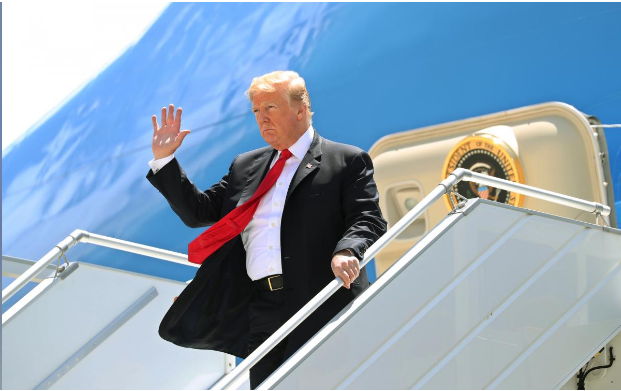Trump raised U.S. car import tariffs to anger!
On May 23, local time, US President Trump asked the U.S. Department of Commerce to investigate the impact of imported vehicles on national security. He will then decide whether to increase the U.S. auto import tariff to 25%. According to foreign media reports, the U.S. Department of Commerce stated on May 23 that under the U.S. Act 232 of the 1962 Trade Development Act, the U.S. government will investigate whether imported vehicles and parts threaten the health of the U.S. auto industry and develop high-end new products. Technical capabilities. On May 24th, local time, US Commerce Minister Ross said that the obstacles that other countries have set up artificially have distort the market, saying that “it is already difficult to return to a reciprocal agreement.†When this news came out, it caused a wave of turmoil among automakers, investors, and governments, including the decline in the share prices of automakers such as VW Group, Toyota Motor, BMW Group, and Daimler. According to data from the American Automobile Research Center, in 2017, 56% of new car sales in the United States were produced locally, Mexico, Canada and Japan each accounted for 11%, Germany and South Korea accounted for 4%, and the remaining 3% came from other regions. Although Canada, Mexico, and the United States have free trade agreements, whether or not tariffs will be levied on the imported vehicles of the two countries in the future depends on the results of the negotiations on the North American Free Trade Agreement. In addition to Mexico and Canada, Japan is the country with the largest export volume of American automobiles. The Japanese government said it will pay close attention to the situation. Yoshihide Suga, chief cabinet secretary of Japan, pointed out on May 24th that "all trades need to follow the World Trade Organization Agreement." Hiroshige Seko, Japan's trade minister, said that this move “will bring the global auto market into chaos, and the restrictions on trade will become widespread.†Toyota and Nissan declined to comment, citing only one industry organization. The statement said, "If it is really implemented, the range of choice for American consumers will be reduced, and the price of products will also rise." For German car manufacturers, the United States is the second largest market in the world except China. Regarding Trump's move, the German Chamber of Commerce and Industry (DIHK) stated that “it is tantamount to provocation†and will have a huge negative impact on manufacturers and consumers, which will bring extra costs of over 6 billion euros per year. Eric Schweitzer, president of DIHK, said that conducting investigations in the name of national defense is "favorable." Trump completely ignored the heavy investment made by German companies in the United States and created many local production jobs. On May 24, Premier Li Keqiang held talks with German Chancellor Angela Merkel, who had paid an official visit to China. The two sides stated that they jointly advocated the maintenance of multilateral attention and free trade rules and facilitated the liberalization of trade and investment. On May 24, the BMW Group condemned the plan to increase tariffs. “The BMW Group has always been committed to global free trade. Accessibility to market components is important to our business model and it is important for global economic growth and employment rates. "The role of BMW Group is that the world's largest factory is its factory in Spartanburg, the US, and BMW's 70% of vehicles produced in the United States are exported to other countries. As of press time, Daimler and Volkswagen Group have not made any comments. Regarding Trump’s intention to increase automobile import tariffs, at a regular press conference of the Ministry of Commerce of the People's Republic of China on the 24th, the spokesman of the Ministry of Commerce stated at a high summit that China is opposed to the abuse of national security provisions, which will seriously undermine the multilateral trading system. Disrupt the normal international trade order. The Chinese side will pay close attention to the relevant progress of the US investigation, conduct a comprehensive assessment of the possible impact, and firmly defend its own legitimate rights and interests. Poly Aluminium Chloride in all form, is extensively used as an industrial coagulant and Flocculent in different industries. Different grades of PAC are available for different purposes. PAC products are used in water treatment for removal of suspended solid (Turbidity) and other contaminants such as natural organic matter from surface water, Micro - organisms and colloidal particles, silt and clay are stabilized by surface electrostatic charges preventing the particles from coalescing. It is advantageous in water of low to moderate turbidity, possibly because of the greater charge neutralizing capacity relative to alum. Water Treatment Chemical Pac,Water Treatment Chemical Poly Aluminum Chloride, PAC for Industrial Water Treatment,Powder Poly Aluminium Chloride SHANDONG ALIVAN CHEMICAL TECHNOLOGY CO.,LTD. , https://www.alivanchem.com
